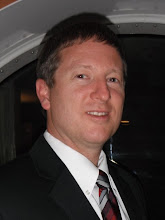"Everything should be made as simple as possible, but not simpler." --Albert Einstein
The outcome was clear: investigate, analyze and document the cause of the disrupted sales volume for the Board of Directors of this historically successful organization.
I began where I generally begin...walking around, listening, observing, open to opportunities to chat. Frankly, my approach causes consternation among middle management, who assume that I will lend my ear and stamp with credence every corporate crank who has an axe to grind against the organization. The well-meaning human resource folks fret that I'll offend someone, disrupt the precipitous workplace harmony, or stir discord amongst the rank and file. The employees know I'm on site, whether formally or through the grapevine.
Fear not! While open to all comers, my process is designed to cull and filter the substance from the strange and irrelevant. But initially one knows not what is relevant, as seemingly random and disjointed observations and phrases are often the signposts to the heart of the matter.
Yes, I was prepared that morning for the usual parade of cranks (employees who gripe about every aspect of the organization) and entertainers (employees and managers sent to sell me on the saintly nature of the organization). Every organization has them, much as every organization has an address, so I don't build my research upon the cranks' and entertainers' musings.
The copy machine...the coffee pot...the lunch room...the mail room...now THAT'S where the real dialogue begins to take place. Takes time to build trust. The substantive discussions begin with simple polite openings and simple open-ended questions. A few notes, no names recorded, only generic positions for reference.
- Some of the most reliable employees to begin are in the mail room, the porter and the receptionist--they provide a framework of Who's Who in the organization.
- The valued individual I seek is the "organizational historian", that employee who has been employed there for decades, and is able to provide anecdotal pathways through organizational culture shifts, economic cycles, and senior management turnover.
- My formal scheduled interviews with key senior managers were certainly framed by their knowledge that their Board had engaged me, but my objectivity and good-naturedness served to alleviate most concerns early in our discussions.
TODAY'S QUESTION: Do YOU have the courage to take YOUR organization down the path of self-examination to remove the impediments to progress and unleash next-generational growth?

No comments:
Post a Comment